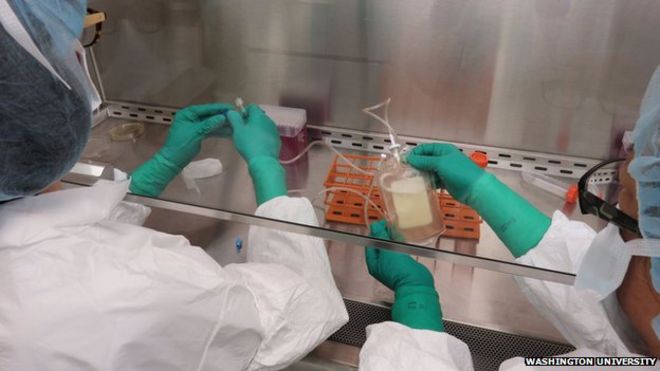Liberian Doctor Dies of Ebola
A senior doctor working at Liberia's largest hospital has died of Ebola.
The Liberian Health Ministry says Dr. Samuel Brisbane died Saturday at an Ebola treatment center on the outskirts of the capital, Monrovia.
He is the first Liberian doctor to die in an outbreak the World Health Organization says has killed 129 people in the country.
The U.S. based aid group Samaritan's Purse said Saturday an American doctor working in Liberia is also sick.
A spokeswoman for the group says Dr. Kent Brantly is undergoing intensive medical treatment. She says patients have a better chance of survival if they receive treatment immediately after being infected, which Brantly did.
The World Health Organization says highly contagious Ebola virus has killed at least 672 people in four African countries this year.
In Sierra Leone, health officials say an Ebola patient whose family sparked a nationwide hunt when they forcefully removed her from a treatment center and took her to a traditional healer, died in an ambulance on the way to a hospital.
Health officials say fear and mistrust of health workers in Sierra Leone, where many people have more faith in traditional medicine, are hurting efforts to contain the Ebola outbreak.
The WHO says the outbreak, the largest ever recorded, has also killed 319 people in Guinea and 224 in Sierra Leone.
Meanwhile, Nigeria has stepped up surveillance at its ports and borders, following the country's first confirmed death from the Ebola virus.
Health officials are monitoring airports, seaports and land borders for people arriving who may show signs of the virus. Officials confirmed Friday that a man who died after arriving in Lagos on a flight from Liberia had tested positive for Ebola.
Investigators are trying to track down the other passengers who were on the nearly three-hour flight from Monrovia.
There is no cure or vaccine for Ebola, which causes symptoms that include fever, vomiting, diarrhea and bleeding.
Health workers are at serious risk of contracting the disease, which spreads through contact with bodily fluids.


















